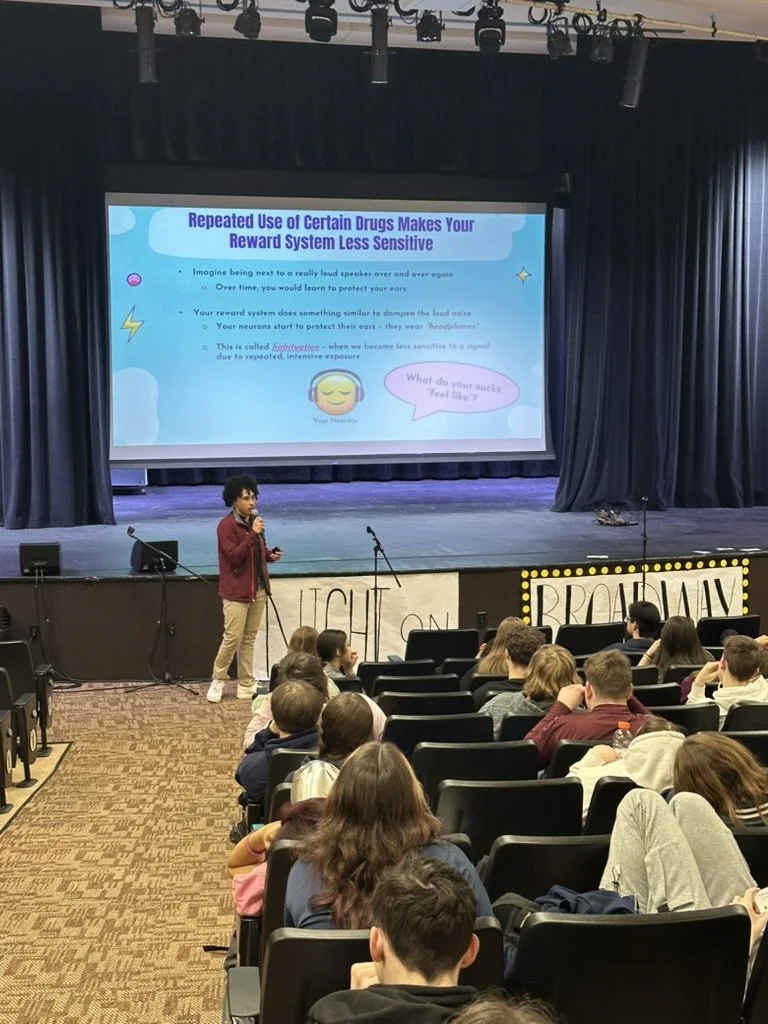Just Say Know
Appalachia has been disproportionately affected by substance use, with overdose-related mortality rates 64% higher than the rest of the United States (Heffernan et al.). One way to combat this crisis is to educate the next generation about the risks that substances pose to their health and well-being. This idea is nothing new, and drug-use prevention programs focused on youth have been around since at least the early 1980s – the most famous of which being “Drug Abuse Resistance Education” (D.A.R.E) (Montvilo). Have you ever heard the saying “Just say no (to drugs)!” or “This is your brain on drugs?” That’s D.A.R.E. Although well-intentioned, D.A.R.E has been largely ineffective at reducing substance use in adolescents (West and O’Neal). Luckily, there are new alternatives to D.A.R.E that have evidence to back up their effectiveness.
One example is “Just Say Know,” which has been making its rounds across Southwest Virginia and the NRV since early 2024. Just Say Know (JSK) is a science-based substance-use prevention program aimed at teen and pre-teen audiences facilitated by college students and recent graduates. In the original JSK program started in South Carolina 76% of students reported that they would delay or cut back on substance use(Meredith et al.). In this program, students are taught how the biology of the brain is affected by substances. In other words, they are taught the neuroscience of drug use. The goal of JSK is to empower students with information about the potential consequences of long-term substance use, while respecting their autonomy to make the choice for themselves.
The first section of the program covers basic information about how the brain works and its role in controlling our actions, thoughts, and feelings. The second section focuses on how drugs, such as alcohol, cannabis, caffeine, and nicotine, change how our brain works. This section goes in-depth about the long-term effects that these drugs can have on the brain. It provides students with answers to questions like “why do people use drugs in the first place?” and “why can it be so difficult for some people to stop using drugs?” A core idea of this part of the program is that repeated substance use can make it more difficult for us to feel motivated to do things that we used to enjoy. The final segment of the program is about how the brain changes as we age and how substance use can influence the achievement of long-term goals. This section begins with a reminder that the brain continues developing until around age 25. Since all presenters are under 25, they’re able to connect with students on a peer-to-peer level, which helps make the message more impactful.
Historically, substance-use prevention programs in schools have relied on fear-based messaging to promote abstinence. Rather than attempting to shock students into avoiding substances, it is the goal of newer programs like JSK to give students the tools that they need – in the form of education – to make informed choices. We hope that with programs like these we can inspire Appalachian youth to think deeply about how their choices can influence their greater well-being and encourage them to “know” how choices influence that.
The Teen Lab at the Child Study Center at Virginia Tech has been developing the JSK program in collaboration with the NRV Recovery Ecosystem. If you’re interested in having a training in your school or youth-based program, please contact Holly Lesko at hlesko@nrvrc.org.
Additionally, a JSK-presenter training program is in the works! It is open to any college student (two or four-year college) living in the NRV! Please contact teenlab.vt@gmail.com for more information.
